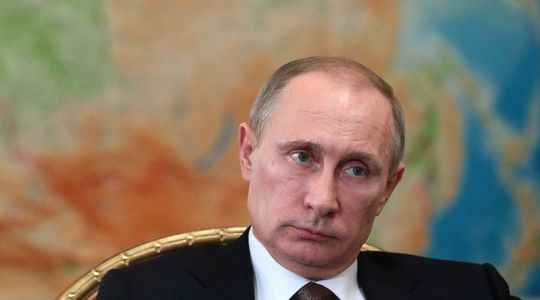UNITED STATES
Abortion torpedoed by the Supreme Court
The ruling by the nation’s highest court has sparked disbelief and anger across a broad swath of American society. On June 24, the Supreme Court overturned the so-called “Roe v. Wade” case law dating from 1973 and gave the 50 states the freedom to ban abortion. The measure takes effect immediately in 13 states and will soon be extended to 12 others. “Devastated, the Democratic camp hopes that this decision will mobilize its electoral base, weakened by the unpopularity of Joe Biden”, writes The New York Times. For their part, the Republicans think that the legislative elections of November 8 will be played out on the question of inflation and the price of gasoline.
ECUADOR
Native Americans against the high cost of living
Threatened with impeachment in Parliament, President Guillermo Lasso – a former right-wing banker in power for a year – ended the state of emergency declared for a week on June 25. Since June 13, indigenous demonstrators have been blocking roads and occupying oil wells in the Amazon region to protest against the high cost of living due in particular to the increase in fuel prices. Five protesters died in clashes with police, 500 were injured. “It is unthinkable that 50% of the peasantry lives in the most abject poverty”, estimates the Ecuadorian daily The Commerciofor whom “the political crisis continues”.
BURMA
Aung San Suu Kyi imprisoned
The future of Aung San Suu Kyi seems more compromised than ever, after the announcement, on June 23, by the spokesman of the army, of her imprisonment in a prison of the capital. She was placed there in solitary confinement. The former leader had been under house arrest since her overthrow by a coup on February 1, 2021. Aged 77, she risks ending her days behind bars. A figure of opposition to the military dictatorship since the 1980s, Aung San Suu Kyi has been “the biggest thorn in the side of the generals”, who “now seriously intend to get rid of her”, fear the site The Irrawaddy.
UKRAINE AND MOLDOVA
Kyiv and Chisinau win EU candidate status
On 23rd June the 27 officially granted EU candidate status to Ukraine and Moldova. “It’s a unique and historic moment,” greeted Ukrainian President Volodymyr Zelensky. A note of hope for kyiv, while the Ukrainian army is still resisting the Russian invader despite the loss, on June 25, of the city of Severodonetsk.
“However, the decision is highly unlikely to lead to sudden buy-in, nuance the FinancialTimes. The leaders defined a number of conditions related to the rule of law, corruption and the judicial system that Ukraine must meet.” There is still a long way to go.
RUSSIA
Putin waves (again) the nuclear threat
The announcement is cause for concern: the Kremlin will transfer “in the coming months” nuclear-capable missiles of the Iskander-M type to its Belarusian ally. Vladimir Putin declared it on June 25, when receiving its leader, Alexander Lukashenko.
The two partners also discussed the modernization of the army of Belarus in order to make it capable of transporting nuclear weapons. “Since the beginning of the war, Moscow has used Minsk as a base, in particular for many Russian air operations in Ukraine, according to information collected by NATO surveillance planes”, remember CNN.
MOROCCO
The shock after a migratory drama
They dreamed of Europe, they died on June 24, trying to cross the iron barrier separating Morocco from the Spanish enclave of Melilla. At least 23 migrants have been killed in violent clashes with Moroccan police, who have 140 wounded in their ranks. Some 2,000 individuals tried their luck that day, armed with sticks and stones. According El Mundo, “flagrant excesses” of the Moroccan security forces and “inadmissible failures” on the Spanish side explain this tragedy. The daily believes that “concerted action” by Europe and NATO is necessary to respond to migratory pressure.
EUROPEAN UNION
Carbon tax: agreement in Parliament
On June 8, MEPs had failed to agree on the strategy to adopt to reduce greenhouse gas emissions by 55% by 2030. They finally voted for a compromise position on June 22. Social Democratic and centrist groups “accepted the many pro-industry amendments pushed by the Tories in return for a faster abolition of free pollution permits and a somewhat tighter cap on emissions”, precise Politico. Next step: the Twenty-Seven must agree in turn, before negotiations with Parliament on the final text.
Charlotte Lalanne, Axel Gyldén, Clément Daniez and Paul Véronique
